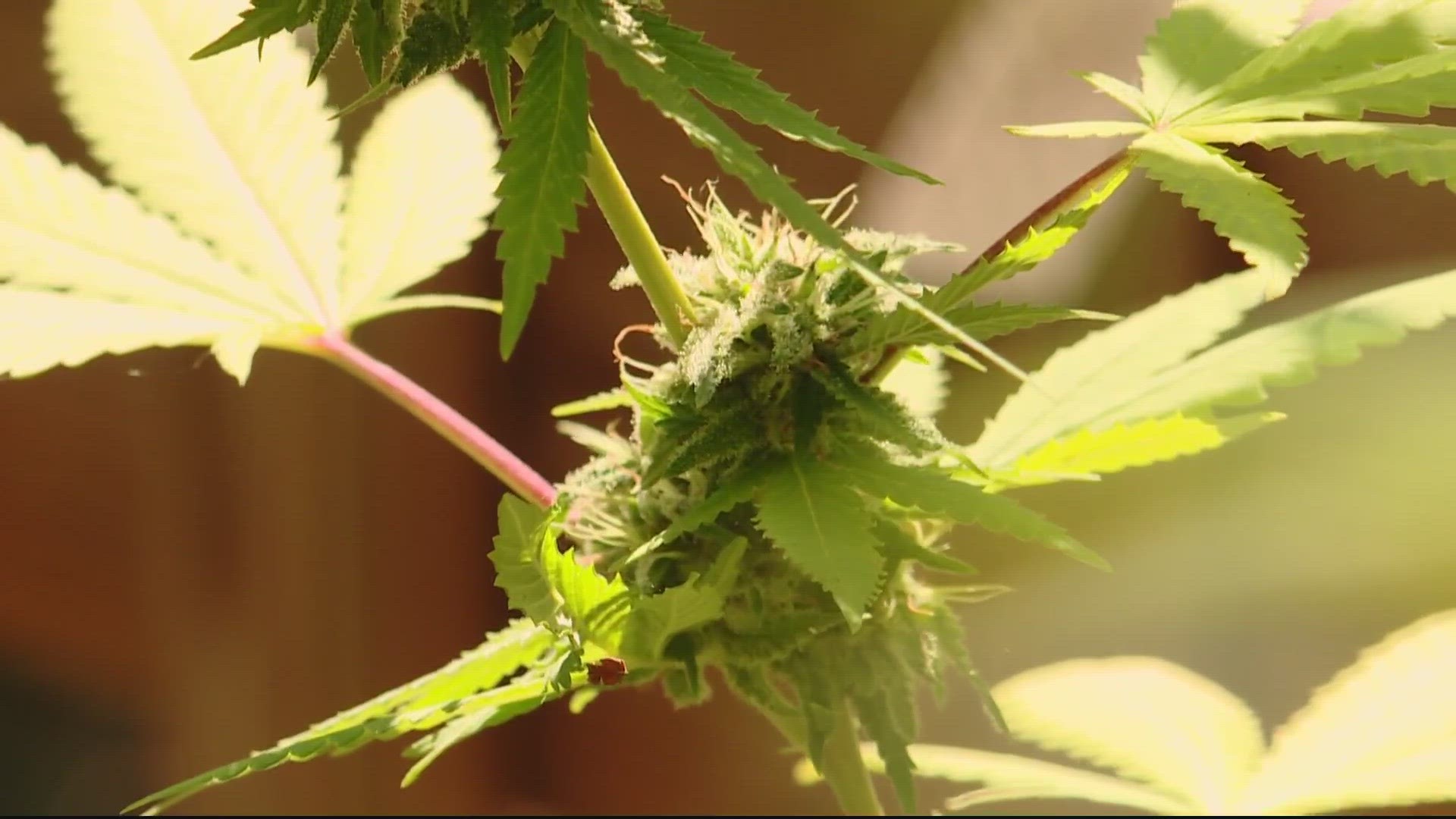WASHINGTON — A D.C. man was told by a court this week he is forbidden from smoking cannabis inside his home, after a neighbor sued him. In a lawsuit, the neighbor claimed that years of breathing in his marijuana smoke had harmed her health.
Northwest D.C. resident and health researcher Josefa Ippolito-Shepherd says for several years the smell of marijuana smoke seeped in through vents in the duplex wall she shared with Thomas Cackett, a 73-year-old restaurant manager.
"It comes to the whole house and up, because fumes go up," said Ippolito-Shepherd. "It doesn't matter if I'm here or if I am in my office on the third floor."
Once the smell would come in, Ippolito-Shepherd said she'd feel nauseous.
"That's how it starts, [and] headaches follow," she said. "Very, very strong headaches within the hour. Then, I start vomiting -- nonstop-convulsion type."
Cackett, living in the basement apartment next door, did not respond to WUSA9's request for comment. In court, Cackett testified he smokes for pain relief after numerous surgeries. Cackett added that cannabis edibles give him upset stomach and take too long to work.
"I feel sorry for him," Ippolito-Shepherd said. "I don't know what else to say. I have no ill feelings toward this gentleman."
Court papers show that after hundreds of emails from Ippolito-Shepherd to Cackett, she sued her neighbor in 2020.The DC Superior Court first rejected her case. But the DC Court of Appeals said her case deserved a second look.
On Monday, a judge ordered Cackett to never smoke Cannabis inside his home again or he would be held in contempt of court.
"District of Columbia Courts have not addressed the present situation where a neighboring homeowner (occupant) with a shared common wall suffered diminution of the full use and enjoyment of her property due to marijuana smoke," DC Superior Court judge Ebony Scott wrote. "In the absence of appellate or other authority in this jurisdiction, the Court may be guided by Maryland common law."
Judge Scott cited Schuman v. Greenbelt Homes, Inc which granted Schuman's request to ban his neighbor from smoking tobacco inside their home.
However, the court decision could still be appealed to the DC Court of Appeals.
"This was approached solely from the public health perspective, so that to me is a precedent," Ippolito-Shepherd said.
James Repace testified as an expert in secondhand smoke for the DC court hearing, and noted that when you live in any multi-unit dwelling, the walls, floors, ceiling and even windows are porous.
"Whether you're smoking joints, or bongs, or pipes or whether you vape it, these instruments will produce much more smoke than will a Marlboro cigarette," Repace said.
He added that for a non-smoker who breathes in tobacco smoke, they would likely experience symptoms like headaches, dizziness and eye/nose/throat irritation. But for a non-smoker who takes in marijuana smoke, they can get high from it.
"I think if you're in your apartment, or your attached house, and the smoke is permeating, through the walls, you don't want to be high in your own house," Repace said.
Adam Eidinger, with DCMJ, led the push to legalize cannabis in D.C. and wants this case to lead to a push to allow outdoor public smoking.
"I think this is a wake up call for cannabis users," Eidinger said. "We need to advocate for outdoor spaces and social use spaces. If you're smoking on a public street in Washington D.C., it's not fair that you could be arrested or face a $25 fine, have to get fingerprinted or get your mugshot taken."
Eidinger added that he believes Ippolito-Shepherd had valid reasons for taking her case to court, given that she tried to work it out with the neighbor first, and hopes cannabis users will take heed.
"If you're putting smoke in your neighbor's house, that's not right," he said. "We all have a right to clean air in our own home. It shouldn't be polluted by a neighbor ... I think everybody should try to figure out a way to coexist. If you're living next to someone who is a nuisance, you should try to talk to them first."
Ippolito-Shepherd agreed, and urged anyone facing a similar situation to first try and negotiate with their neighbor.
"It's not fun to go to the court system," she said. "It has been a long, long battle. It is very expensive. But more than the money, it's mental exhaustion that you have to go through."

